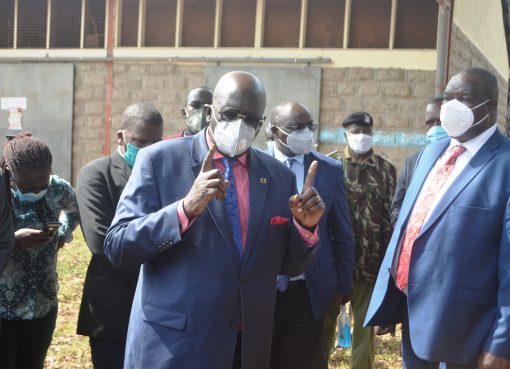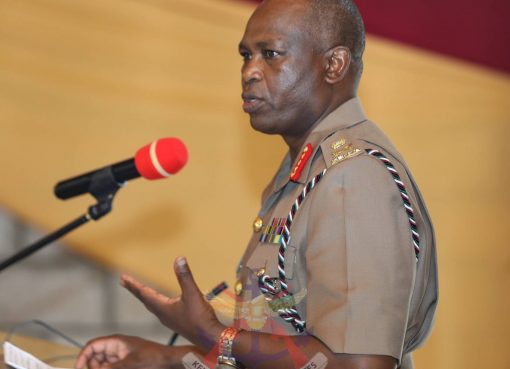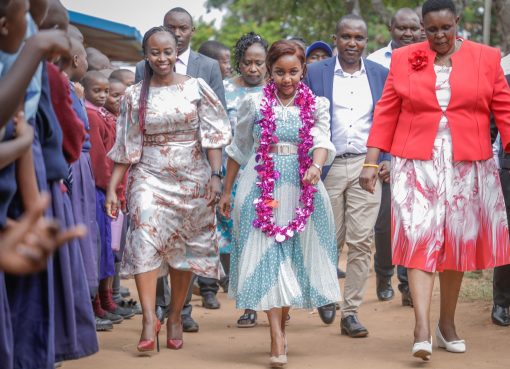The government will spend Sh2.7 billion in scaling up of community health volunteers (CHVs’) program in the next three years in the quest to improve public health status in the country.
Council of Governors (COG) Health Committee Chairman, Governor Muthomi Njuki said that the government’s plan is to increase the number of the health volunteers in the country from the current 88,000 to 100,000 total.
“The national government is going to spend Sh2.7 billion in the next three years to ensure that up-scaling is taking place, the county governments are already taking care of the 88,000 community healthcare workers, we just want the program to be enhanced and that is the best place to be,” said Njuki.
Njuki who is also the Tharaka Nithi Governor was addressing the ongoing first Public Health International Conference in Mombasa Monday said that counties which have taken the burden are struggling due to limited resources that are channeled to the county governments as revenue share.
“The last time we sat in the intergovernmental summit between the two levels we resolved that we are going to enforce the community health volunteers program by up-scaling them from the current 88,000 to 100,000 total in the country,” Njuki confirmed.
He said the sector has been ignored for a long time since it deals with preventive measures, stating that the conference seeks to improve and bring the communicable disease burden down in the country.
“If you look at the funding structure of the county government, counties still spend 30 percent of the budget they get on health, that does not barely scratch what it needs, what we are seeing on the other hand is a lot of resources that would be useful to the counties are stuck in Afya house,” said Njuki.
Governor Njuki said most counties have only allocated below 30 percent of their budgets on health matters, stating that there is need to ensure a paradigm shift by ensuring that counties invest heavily on preventive health rather than curative.
“Community health workers are volunteers and the stipend they get is very minimal; they get around Sh1500 and Sh2,000 which is very little,” said Njuki, adding that the government is working to improve the welfare of the personnel.
“We realized that they are very effective if we equip them with basic tools of data collection, we have to make sure they have simple tools like thermometers to be able to take temperatures, and we want them to do things that they are good at,” Njuki added.
The Chairman of the conference, Mr. Mohammed Karama said that the forum was a good medium to bring the members up to speed on the current issues of public health while reconnecting all members from the country.
He affirmed that there are plans to launch a Training Needs Assessment which is aimed at transforming the training system in the country to improve the performance of the public health workers in order to address the government’s policy.
“Health has become very complex and therefore we need to restructure and retrain, build the capacity of our workers, train them with more special skills to be able to go much more into details of their areas of operation” Karama said.
Chief Executive Officer of Public Health Officers and Technicians Council, Mr. Aggrey Oriema said that the conference is an ongoing discussion to identify the gaps in service delivery, ensure coordination between national and the county governments is enhanced adding it will further bring development partners on board and ensure a critical mass that will support public health service delivery in the country.
He said that they are also looking to strengthen their regulatory framework to ensure a competent workforce.
“We are going to make sure there is public sensitization so that citizens are aware of the various causes of our disease burden, not only for the communicable but also for the non-communicable diseases which is becoming a big health problem,” Oriema said.
The forum which brought together public health officers from both the county and central government sought among others to have the public health act reviewed to align it with the current constitution.
Participants also sought to spell out a proper funding plan of the devolved units in managing public health affairs within the counties. It also sought to address the welfare of community health volunteers to have a meaningful remuneration as a motivation.
“As a council, we have looked at the Public Health Act and seen the need to make it live with the current constitution, we are going to engage the government and initiate the review,” Njuki concluded.
By Fatuma Said





